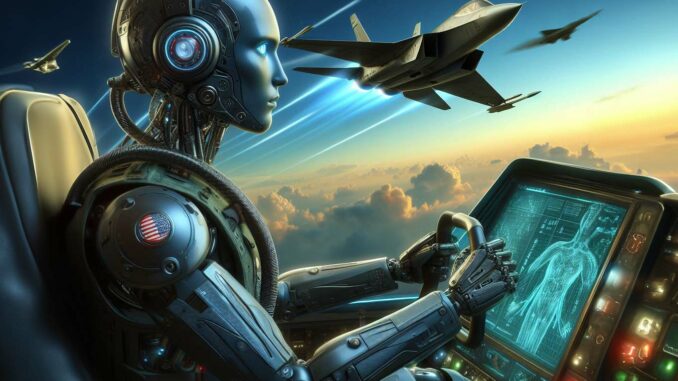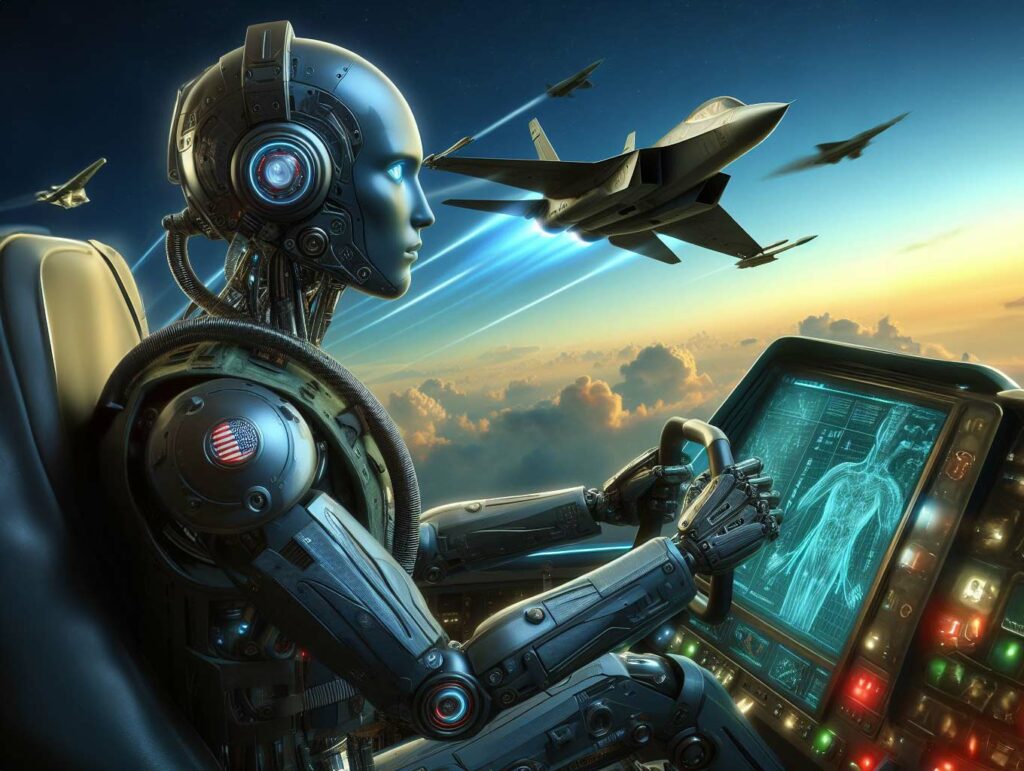
Japan and the USA join forces for AI research applied to drones, aimed at boosting the capabilities of Japan’s future fighter jet.
Artificial intelligence in military drones
Japan and the USA recently signed a joint research agreement on artificial intelligence (AI), with the aim of integrating this technology into drones designed to work in tandem with Japan’s next fighter jet. This initiative represents a significant step in the evolution of aerial warfare, marking a turning point towards more autonomous and technologically advanced combat systems.
The joint development program for the next-generation fighter by Japan, Great Britain and Italy, scheduled for 2035, is an ambitious project aimed at replacing Japan’s F-2 aircraft and the British and Italian Eurofighters. Although the USA is not directly involved in this fighter project, its collaboration with Japan in the field of AI and autonomous systems underlines its commitment to maintaining a strong technological alliance.
The main objective of this joint research is to revolutionize air combat by combining advanced AI and machine learning with advanced unmanned aerial vehicles (UAVs). The AI developed as part of this research is intended to be applied to UAVs that will operate alongside Japan’s future fighter aircraft, offering a new dimension in data collection and combat mission support.
This innovative approach represents a quantum leap in the modernization of military capabilities, enabling better decision-making, increased responsiveness and reduced risk for human pilots. The fusion of AI and drones in the military context paves the way for war scenarios in which machines play an increasingly central role, offering significant strategic advantages.

Impacts and implications of AI in military aviation
Incorporating artificial intelligence into military drones, in collaboration with next-generation fighters, presents both opportunities and challenges. Benefits include increased data-gathering capacity, better decision-making based on real-time analysis, greater precision in military operations and reduced risks for human crews. These AI-powered drones can carry out reconnaissance, surveillance, targeting and even attack missions, offering increased operational flexibility.
However, the use of AI in military drones also raises important ethical and strategic questions. The increased reliance on autonomous systems in military operations raises questions about targeting and engagement decision-making, as well as liability in the event of errors or collateral damage. Moreover, the technological arms race between nations could lead to an escalation of tensions and conflicts, with implications for global security.
The collaboration between Japan and the USA in this area signals a shift in the balance of military power, and a recognition of the importance of technological advancement in defense strategy. This initiative could encourage other countries to invest further in similar technologies, leading to a global transformation of air warfare.
The Japan-USA agreement on AI for combat drones marks a significant step forward in the modernization of military capabilities, while raising crucial strategic and ethical questions.
War Wings Daily is an independant magazine.